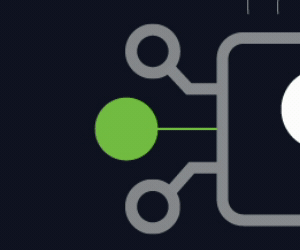HEALTHTECH: How has healthcare cybersecurity evolved in recent years? What do healthcare organizations need to be more wary of now, compared with five years ago?
BARRERA: I think a lot of it has to do with what I see as an avalanche in the scope, breadth and rate of breaches that have happened. WannaCry in 2017 was really a major catalyst for what’s been a constant stream of ransomware attacks, especially in healthcare. Warnings from the FBI and the Cybersecurity and Infrastructure Security Agency have also focused more on healthcare as a main focus for attacks.
Because of that, organizations have had to be more vigilant in several domains. One of them is the Internet of Medical Things, where for years biomedical equipment had been largely unmanaged because of certain expectations for a “pristine” environment from manufacturers, for instance. Another area is zero trust, which has grown a lot in healthcare.
For organizations that tend to be pretty conservative in their cloud use, it’s getting harder for that to be the case, and it’s often no longer their choice anymore. Some solutions just don’t offer an on-premises option. In many cases, we've gone from a structure of perpetual licensing to subscription. The expanded risk profile that may come with going to the cloud is a big deal.
That also impacts identity and access management, which is core for zero-trust security. When you know your systems are no longer within your walls, and you either have primarily a cloud environment or some kind of hybrid environment, maintaining the sanctity of that identity is important. You need to know what your organizational roles and responsibilities are as things shift to the cloud.
Similarly, as AI plays a larger role for organizations, your users are already relying on AI in some form or another and trying to circumvent controls. And the adversaries are absolutely using AI to try to hurt different organizations.
READ MORE: Purple team exercises can enhance your threat management strategy.
HEALTHTECH: What areas of security has Jackson Health been interested in? Why should other healthcare organizations focus on those areas?
BARRERA: Through cyber liability insurance, we’ve turned to relying on immutable backups. It gives us a considerably different level of assurance that provides us the ability to know that our backups are not infected, and that once the data is backed up, it cannot be modified. Previously, if a ransomware attack were to happen, we might have had a backup that was compromised. So, switching to immutable backups is relatively low-hanging fruit.
Because of the cloud, AI and having, in some ways, a decentralized architecture, a very strong identity and access management solution is necessary. Managing identities across the board is key for zero trust, especially having a privileged access management solution. I think that when you have PAM, you're in a different league than just having regular credentialing that is not managed in a vault.
For Jackson Health, as we focus within the AI space, we want to know how the credentials being used are managed, because many times there’s a huge gap. There’s somewhat of a sprawl of AI technologies being stood up, and if some of these technologies are not within a regimented hardware lifecycle process, you could have quite an issue. When it comes to AI, follow the basic principles. Don't give it administrative root access if it just needs to read.
Over the course of several years, Jackson Health has been incredibly successful with periodic access reviews. We do monthly control audits, and we have Active Directory credential validations. A lot of these are fully automated. This is another basic we follow so that we can support the more modern or cutting-edge technology solutions that everybody wants.












